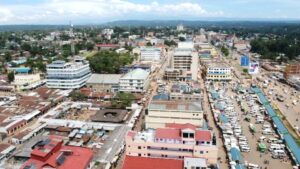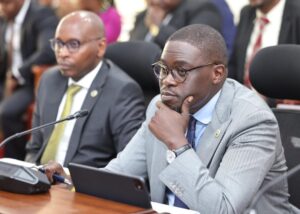Alarming UNICEF report leads Nguvu Change Leaders to renew their appeal for CSE in Kenyan schools
Tasline Otieno, Sylvia Awinja, Claris Oyunga, Sharon Ingato and Ermiyas Males believe age-appropriate information can empower vulnerable girls
A UNICEF report released this month offers staggering figures to reveal that more than 79 million girls and women—over 1 in 5—across sub-Saharan Africa have experienced
rape or sexual assault before turning 18. The grim summation of global violence against children also states that 370 million girls and women have faced sexual violence, with
Sub-Saharan Africa bearing the highest number of victims.
For a large number of Kenyan girls and women, these alarming numbers indicate their lived experience of Gender-Based Violence (GBV). They are no stranger to the scourge of
femicide either. In September, Olympian Rebecca Cheptegei died after her boyfriend poured petrol over her and set her ablaze at her home in western Kenya.
In light of the UNICEF Report, the growing scale of gender violence and lifelong implications suffered by adolescent survivors, Nguvu Change Leaders Tasline Otieno,
Sylvia Awinja, Claris Oyunga, Sharon Ingato and Ermiyas Males are highlighting the need for effective prevention and support strategies. These include a renewed demand
for age-appropriate, Comprehensive Sexuality Education (CSE) in schools.
CSE, believe the Change Leaders, would equip young girls to make informed decisions, avoid risky behaviours, and protect themselves from sexual predators. The petitioners
are appealing to the Ministry of Education to implement sexual education in schools and end the perpetuation of disempowering ignorance.
In her petition, Tasline Otieno urges the Cabinet Secretary of Education Julius Migos Ogamba to include CSE in school curricula to address teenage pregnancies, particularly
in rural areas like Kosoko, Homabay County. She believes it is necessary to educate students about the dangers of early pregnancy and ensuing complications like disrupted
education, birth complications and HIV/AIDS risks.
Sylvia Awinja in her petition cites statistics from the Kenya Demographic and Health Survey 2022, to reveal that Kenya records thousands of adolescent pregnancies annually
with teenagers lacking even the basic knowledge about risks like HIV. She argues foreducation that empowers young girls about their sexual and reproductive health rights.
Claris Oyunga’s petition seeks Sexual and Reproductive Health and Rights (SRHR) education in the junior high school curriculum in Kenya. This she believes will enable
girls to not just recognise abuse but to access support systems in a crisis.
Change Leader Sharon Ingato advocates in her petition for a school curriculum in high schools in Kakamega County, covering a wide range of topics, including consent,
contraception, STD/STI prevention, and sexual orientation.
In his petition, Ermiyas Males also seeks age-appropriate, science-based, human sexuality education as it aligns with the constitutional rights and policies on education,
protection from abuse, and reproductive health care. This, he says, will not only reduce risks like unplanned pregnancies and sexually transmitted infections but also promote
gender equality, and foster inclusivity by addressing diverse sexual orientations.
In a joint statement, the Nguvu Change Leaders stated, “The harrowing statistics compel us to reignite the conversation about the urgent need for
comprehensive, age-appropriate sex education. No one can afford to stay silent in light of these staggering findings. Research shows that such
education can effectively reduce child sexual abuse by teaching body ownership, recognizing abusive situations, and empowering children to
report to trusted adults. We urge Members of Parliament to join us in advocating for the integration of age-appropriate CSE in the school
curriculum.”




